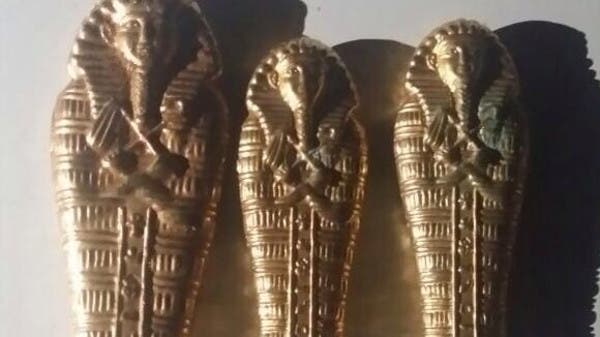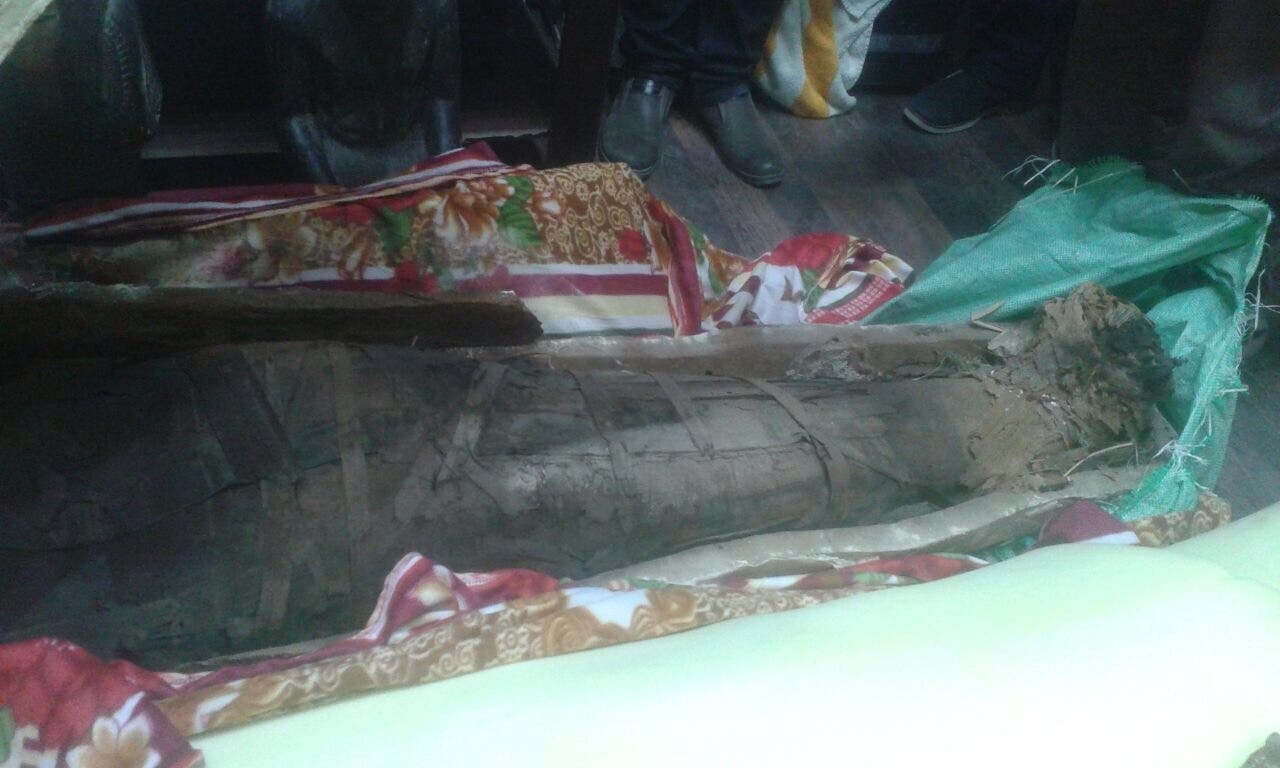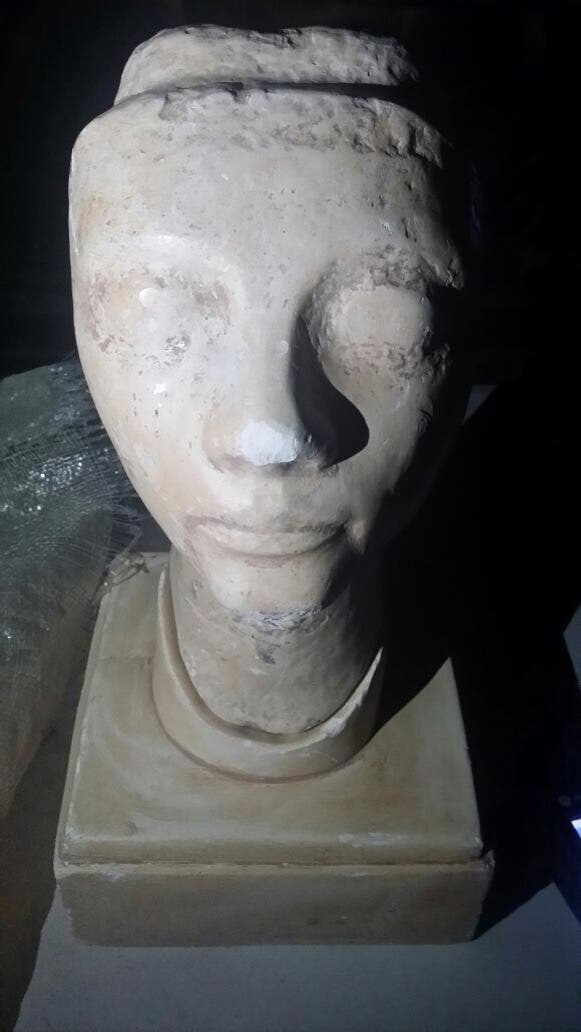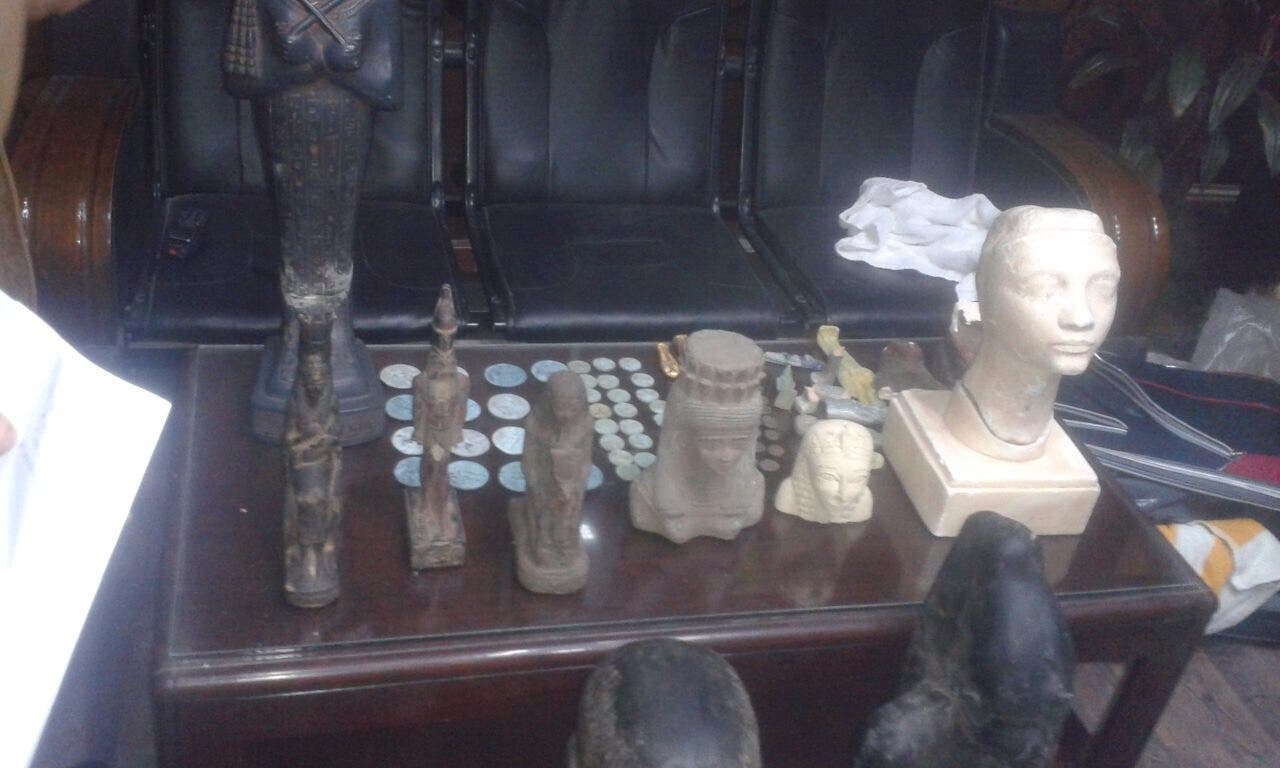The blog aggregates news about publications, activities, etc. related to Egyptian/Arabic scholarship in the field of Greco-Roman studies and thus seeks to challenge the Eurocentrism prevalent in the field. It aims also at directing the attention to relevant materials from modern nonacademic/public contexts; roughly from 1798-to the present. The news comes mainly from Egypt without excluding other Arabic countries.
CC License
Wednesday, March 1, 2017
Classical Papers' new cover to a new issue (2017)
Saturday, February 25, 2017
Google Machine Translation
[Retrieved https://research.google.com/on 25.2.2017]
Machine Translation
Machine Translation is a great example of how cutting edge research and world class infrastructure come together at Google. We focus our research efforts towards developing statistical translation techniques that improve with more data and generalize well to new languages. Our large scale computing infrastructure allows us to rapidly experiment with new models trained on web-scale data to significantly improve translation quality. This research backs the translations served at translate.google.com, allowing our users to translate text, web pages and even speech. Deployed within a wide range of Google services like GMail, Books, Android and web search, Google Translate is a high impact, research driven product that bridges the language barrier and makes it possible to explore the multilingual web in 90 languages. Exciting research challenges abound as we pursue human quality translation and develop machine translation systems for new languages.
43 Publications
Neural Machine Translation
[Retrieved from https://arxiv.org/abs/1609.08144 on 25.02.2017]
Google's Neural Machine Translation System: Bridging the Gap between Human and Machine Translation
Yonghui Wu, Mike Schuster, Zhifeng Chen, Quoc V. Le, Mohammad Norouzi, Wolfgang Macherey, Maxim Krikun, Yuan Cao, Qin Gao, Klaus Macherey, Jeff Klingner, Apurva Shah, Melvin Johnson, Xiaobing Liu, Łukasz Kaiser, Stephan Gouws, Yoshikiyo Kato, Taku Kudo, Hideto Kazawa, Keith Stevens, George Kurian, Nishant Patil, Wei Wang, Cliff Young, Jason Smith, Jason Riesa, Alex Rudnick, Oriol Vinyals, Greg Corrado, Macduff Hughes, Jeffrey Dean
(Submitted on 26 Sep 2016 (v1), last revised 8 Oct 2016 (this version, v2))
Neural Machine Translation (NMT) is an end-to-end learning approach for automated translation, with the potential to overcome many of the weaknesses of conventional phrase-based translation systems. Unfortunately, NMT systems are known to be computationally expensive both in training and in translation inference. Also, most NMT systems have difficulty with rare words. These issues have hindered NMT's use in practical deployments and services, where both accuracy and speed are essential. In this work, we present GNMT, Google's Neural Machine Translation system, which attempts to address many of these issues. Our model consists of a deep LSTM network with 8 encoder and 8 decoder layers using attention and residual connections. To improve parallelism and therefore decrease training time, our attention mechanism connects the bottom layer of the decoder to the top layer of the encoder. To accelerate the final translation speed, we employ low-precision arithmetic during inference computations. To improve handling of rare words, we divide words into a limited set of common sub-word units ("wordpieces") for both input and output. This method provides a good balance between the flexibility of "character"-delimited models and the efficiency of "word"-delimited models, naturally handles translation of rare words, and ultimately improves the overall accuracy of the system. Our beam search technique employs a length-normalization procedure and uses a coverage penalty, which encourages generation of an output sentence that is most likely to cover all the words in the source sentence. On the WMT'14 English-to-French and English-to-German benchmarks, GNMT achieves competitive results to state-of-the-art. Using a human side-by-side evaluation on a set of isolated simple sentences, it reduces translation errors by an average of 60% compared to Google's phrase-based production system.
Subjects:Computation and Language (cs.CL); Artificial Intelligence (cs.AI); Learning (cs.LG)
Cite as:arXiv:1609.08144 [cs.CL]
(or arXiv:1609.08144v2 [cs.CL] for this version)
Submission history
From: Mike Schuster [view email]
[v1] Mon, 26 Sep 2016 19:59:55 GMT (969kb,D)
[v2] Sat, 8 Oct 2016 19:10:41 GMT (968kb,D)
Which authors of this paper are endorsers? | Disable MathJax (What is MathJax?)
Link back to: arXiv, form interface, contact.
Wednesday, February 22, 2017
The Classical Language Toolkit (CLTK)
http://cltk.org/
Goals
- compile analysis-friendly corpora;
- collect and generate linguistic data;
- act as a free and open platform for generating scientific research.
Academic Advisors
- Neil Coffee, University at Buffalo (Associate Professor of Classics); Tesserae (Principal Investigator)
- Gregory Crane, Universität Leipzig (Humboldt Chair of Digital Humanities), Tufts University (Professor of Classics); Perseus (Editor–in–Chief) and Open Philology (Director)
- Peter Meineck, New York University (Associate Professor of Classics); Aquila Theatre (Founder), Ancient Greeks/Modern Lives (Founder, Director)
- Leonard Muellner, Brandeis University (Professor Emeritus of Classical Studies); Center for Hellenic Studies (Director of Publications, Information Technology and Libraries)
Hunayn b. Ishaq - ܚܘܢܝܢ ܒܪ ܐܝܣܚܩ(808 - 873)
Identity from syriaca.org
James E. Walters et al., “Hunayn b. Ishaq — ܚܘܢܝܢ ܒܪ ܐܝܣܚܩ ” in A Guide to Syriac Authors, eds. David A. Michelson and Nathan P. Gibson, entry published August 17, 2016, Syriaca.org: The Syriac Reference Portal, ed. David A. Michelson. http://syriaca.org/person/542.
"Physician, philosopher, theologian, and translator. His full name is Abū Zayd Ḥunayn b. Isḥāq b. Sulaymān b. Ayyūb al-ʿIbādī, and he was known in medieval Europe as Johannitius.”
Syriaca.org
From the website of the project [retrieved 22.2.2017]
What is Syriaca.org?
Saturday, February 4, 2017
Illicit Trade in Papyri: How It Works?
Three golden ushabti !
A mummy !
Illicit Trade in Papyri: How It Works?
Friday, January 6, 2017
Anastas Al-Karmali ( the Carmelite) on Youtube
Anastas Al-Karmali (Arabic: أنستاس الكرملي), literally Anastas the Carmelite aka Père Anastase-Marie de Saint-Élie (5 August 1866 – January 7, 1947) was a Lebanese Christian priest, most famed for his contributions to the field of Arabic linguistics.
His biography in Youtube:
Monday, December 12, 2016
Sunday, December 4, 2016
Manchester's PhD Funding Opportunities in Classics & Ancient Historyمنحة دكتوراة فى علم البردي
PhD opportunities at Manchester.
Sent: 02 December 2016 09:39
To: CLASSICISTS@liverpool.ac.uk
Subject: PhD Funding Opportunities in Classics & Ancient History, University of Manchester
- AHRC studentships through the North-West Consortium Doctoral Training Partnership (NWC DTP; see the North West Consortium Doctoral Training Partnership). Please note that this scheme allows for joint supervision between institutions which are members of the relevant 'pathway' in the consortium: members of the Classics & Ancient History pathway are the University of Liverpool, Manchester Metropolitan University, and the University of Manchester. If you would like to explore this option, please contact, in the first instance, the institution at which you plan to base your PhD.
- President’s Doctoral Scholarships: for Home/EU/International tuition fees, plus a maintenance stipend (equivalent to the RCUK stipend).
- School awards: for Home/EU/International tuition fees, plus a maintenance stipend (equivalent to the RCUK stipend).
- The Department of Classics & Ancient History is also pleased to invite applications for the Lees Scholarship, for PhD research in the field of Latin (including literary, historical, philosophical and linguistic topics); this award covers Home/EU tuition fees for up to three years.
Potential applicants to our PhD programme should consult their prospective supervisor as soon as possible, or contact our Postgraduate Research Officer (polly.low@manchester.ac.uk), who is always happy to discuss potential applications, to answer specific queries about the application process, and to arrange visits to the Department.
- Postgraduate funding (main University website with non-subject specific funding opportunities)
- Funding for postgraduate research students in SALC (School of Arts, Languages and Cultures funding opportunities)
Saturday, August 20, 2016
Multilingualism in the Graeco-Roman Worlds, ed. by Alex Mullen and Patrick James, Cambridge University Press 2012
Greek Language and Education Under Early Islam, Maria Mavroudi 2014
 |
| Manuscript of Sughrat (Socrates) belongs to a 13th century Seljuk illustrator. It is currently kept at Topkapi Palace Library, Istanbul, Turkey |
Friday, August 19, 2016
Kitto's the Greeks (1951) into Arabic
Two New Editions of the Arabic Translation of Aristotle's Politics
Nicomachean Ethics from the French (of Barthélemy-Saint-Hilaire, Morale d'Aristote 1856) into Arabic
Βάτραχοι (The frogs) of Aristophanes into Arabic by Abdelmoety Sharawy (2011)




























